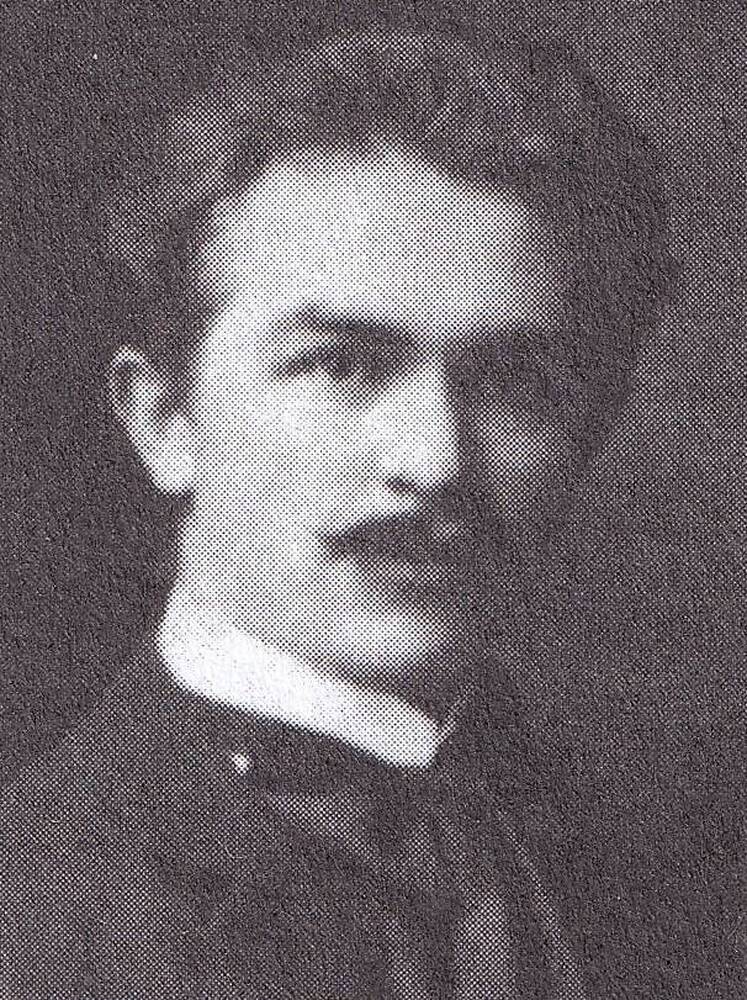site.btaGerman by Origin, Bulgarian by Spirit: Lovech Celebrates 140th Birthday of Musician Victor Gut


In 2025, Lovech marks the 140th anniversary of the birth of musician Victor Gut: a German by origin and Bulgarian by spirit. Gut's life is a tragic but inspiring story about young artists who died too early, Svetlana Petrova, Head of the Local History Department at the Regional Library in Lovech told BTA.
"Victor Gut is an extraordinary musician and composer, born in Lovech in 1885 into the family of German settlers Maria and Friedrich Gut. However, his soul was deeply connected to Bulgaria," Petrova emphasised.
Friedrich Gut, who was a pharmacist, moved together with his wife and two daughters from the German city of Kronstadt to Lovech at the request of the Bulgarian government, to help the newly independent country handle the growing healthcare needs of its population. He opened the first pharmacy in the small provincial town, three years before his son and future composer was born.
"Victor Gut grew up in a family where nobility and refinement were no alien concepts," Petrova noted. The family owned the first private piano in Lovech, which was a symbol not only of wealth, but also of a conscious choice in the cultural and spiritual upbringing of children. "In this home, music was played daily," Petrova said. Victor's mother, Maria Gut, was a pianist, and his older sister, Frieda, graduated from the Music Conservatory in Dresden, majoring in piano. She later became one of the first piano teachers in Lovech.
The Guts' home was not just an ordinary home in Lovech, but a centre of music and art, with local teachers, artists and intellectuals often gathering there, Petrova said. It would be the first school and inspiration in Victor Gut's life.
The young Gut had his first violin lessons with conductor William Skarland. His musical path, however, began for real under the mentorship of one of the great Bulgarian composers, Panayot Pipkov. As one of his first commissions, Gut , then a student, wrote the music and lyrics for the march of the Lovech cycling association Vihar. Pipkov quickly noticed his talent and encouraged him to study abroad. Together with his friends Evstati Pavlov, who would also become a great conductor from Lovech, and Matthew Terziev, Gut began his training at the conservatory in Würzburg, Germany. Along with his studies, he was involved in translations of choral compositions by Mendelssohn and Schumann, as well as with Il Trovatore, which was the first translation into Bulgarian.
In 1909, during a vacation, the three of them organized something unprecedented for that time in Lovech: they performed Scenes from Verdi's opera Il Trovatore, before it was even played in the capital Sofia. Petrova said, "That was the first stage performance in Lovech. The idea of music performed on a stage, with costumes, sets and roles was innovative at that time. Before that, the city had only known choirs and instrumental performances."
She pointed out that the event was a real cultural breakthrough and marked the beginning of stage music in Lovech. Two years later, in 1911, Victor Gut and Evstati Pavlov would present excerpts from La Traviata and Ernani.
After graduating in Germany, Victor Gut returned to Lovech, where he worked as a teacher. In 1912, he moved to Plovdiv, before the First Balkan War sent him to the front. On November 4, 1912, at the positions near Catalca, platoon commander Victor Gut stayed to cover the retreat of his soldiers. He lost his life there at only 27 years old and with a heart full of dreams.
Gut was the only Bulgarian academic musician who died in the First Balkan War, said Petrova.
"A German by origin, a Bulgarian by spirit, he chose his fatherland. The music scene of Lovech lost not only a bright talent, but an inspirer, a teacher and an innovator", Petrova stressed.
She recalled that he admired and worshipped the sacrifice of Bulgaria's national heroes during the Bulgarian National Revival and that he had prepared material for writing the libretto of an opera dedicated to Bulgarian liberation hero Hadzhi Dimitar, as well as a composition of a ballad based on a text by Bulgarian literary classic Ivan Vazov. "He translated works by Wagner into Bulgarian. Marches and orchestral works are left as manuscripts," Petrova said.
Gut had adopted the pseudonym of Slavi Milev, a Bulgarian name. "That was a deeply personal choice. In an era of national awakening, he took a conscious step to define himself not just as a musician and composer, but as a Bulgarian artist. He grew up in a family of foreigners, but he loved Bulgaria with all his heart", Petrova told BTA.
/NF/
news.modal.header
news.modal.text
